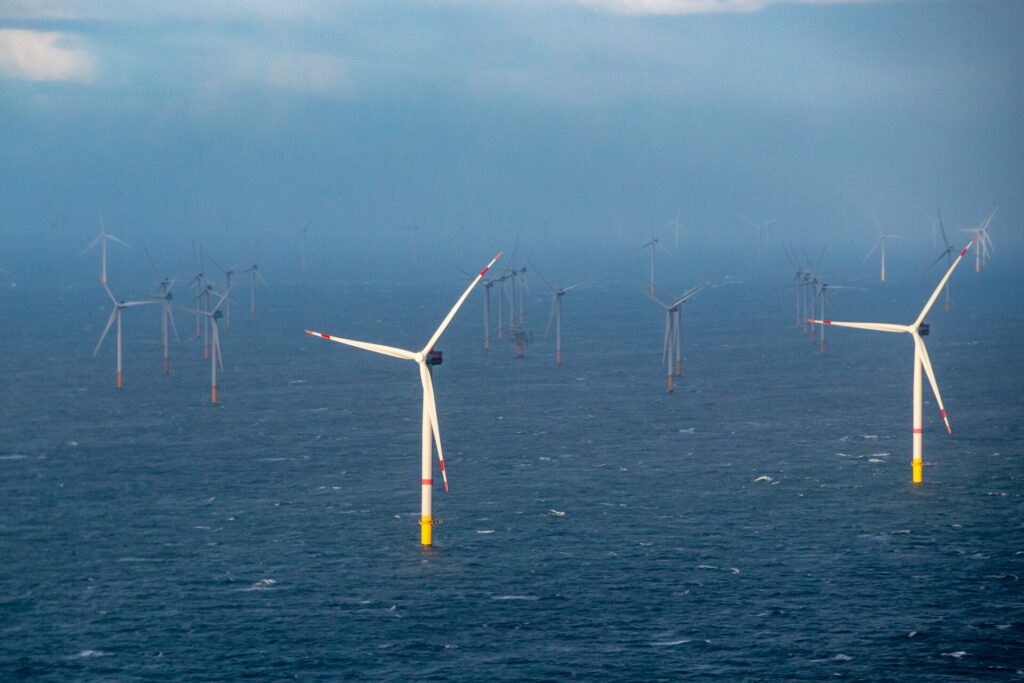A group of researchers released their annual report on the environmental impact of Belgium's offshore wind farms near the North Sea on Thursday. The group investigated the effects that the renewable energy production had on species living nearby.
This is the latest of several such scientific reports carried out by Belgian institutions. The Institute for Nature and Forest Research (INBO), the Institute for Agricultural, Fisheries and Food Research (ILVO), the Marine Biology Research Group of Ghent University and the Royal Belgian Institute of Natural Sciences have all assessed the impact of windfarms and come to similar conclusions.
Their annual research monitors the effects that Belgium's eight wind farms may have on the environment, with its 399 turbines accounting for a third of the country's gross electricity production from renewable energy sources. This year, research focused on aquatic organisms and seabirds living near the turbines and found no harmful effects on their well-being.
Related News
- Climate change a key consideration for EU citizens, though not companies
- New EU greenwashing rules watered down by industry influence
- New IPCC report: A grim and final warning on climate action
Regarding species living on the seabed, which includes benthic fish and epibenthos, the report found that no damage had been made to the communities living near the wind farms. The epibenthos had even benefited from turbines creating artificial reefs for them to live on.
The report also wanted to find how many seabirds had moved away from or had collided with the wind farms. Researchers discovered that no meaningful impact on the seabirds could be measured, while the risk of collision had decreased due to the installation of larger turbines with more open space.
All in all, the research comforted those calling for Belgium to use more wind energy, a sentiment shared by 93% of Belgians surveyed by researchers. The only stumbling block appears to be the uncertainty surrounding the cost of wind farms even if just under half (49%) of those queried did not believe that wind energy was more expensive.

